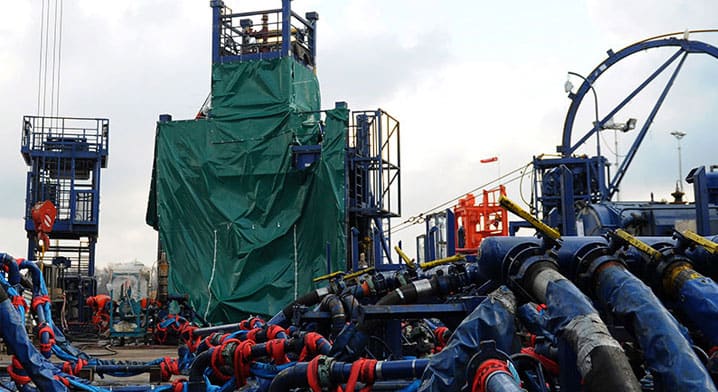Ukraine’s energy independence and gas diversification strategy of last August to reduce its gas dependence on Russia came unstuck following Russia’s annexation of the Crimean peninsula. Prior to this, the Yanukovych government had managed to decrease Ukraine’s gas imports from Russia from 45 bcm in 2011 to just 28 bcm in 2013. The original plan was to end any Russian gas imports by 2020. This was a stepping stone on the way to becoming self-sufficient by 2035 by boosting domestic conventional and unconventional gas extraction.
Putin’s annexation of Crimea was very much driven by undermining Ukraine’s energy and gas diversification strategy. For the strategy to work, the Crimean peninsula was of strategic importance. It has vast offshore oil and gas resources in the Black Sea, estimated between 4-13 trillion cm of natural gas.
The new illegal Crimean government has entrusted Gazprom to manage the peninsula’s energy resources. The Crimean branch of Naftohaz Ukrainy, Chornomor Naftohaz, has already been “nationalised” by Gazprom. It is also expected that Russia will claim large parts not just of Crimea’s, but also of Ukraine’s continental shelf and Exclusive Economic Zone (EEZ), which may seriously complicate the division of the Black Sea continental shelf and EEZs with Romania and Turkey.
Ukraine is now concerned about losing one of the two largest shale gas fields (“Yuzivska field”) in the Donetsk and Kharkiv ‘oblasts’ or regions. Ukraine holds Europe’s third largest shale gas reserves. The new regional separatism of its eastern regions also undermines Kiev’s plan to switch from gas to coal, due to its losing 45.6 percent of its national coal reserves.
Through use of new reverse-flow capabilities in neighbouring EU countries, Ukraine was able to import 2 bcm gas from Germany via Poland and Hungary in 2013. Ukraine has recently also negotiated reverse-flow gas supplies from Slovakia, which offers additional annual imports of 3.2 bcm from October. These could be raised to 8-10 bcm by early 2015.
At least till now, Russia has been willing to pay an economic price for the annexation of Crimea and expanding its geopolitical interests. Former Finance Minister Alexei Kudrin has already predicted that Russia’s capital outflow could reach US$160bn by the end of this year.

